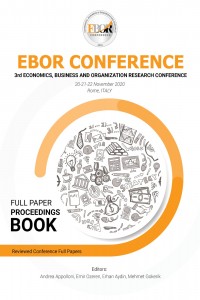Abstract
References
- Brundtland Commission, “Report of the World Commission on Environment and Development: Our Common Future,” 1987, available at: https://digitallibrary.un.org/record/139811?ln=en
- European Foundation for Quality Management, “EFQM Recognition”, accessed in 2020, available at: https://www.efqm.org/index.php/efqm-recognition/
- Excellence Canada, “About the Canada Awards for Excellence”, accessed in 2020, available at: http://excellence.ca/en/awards/about-the-canada-awards-for-excellence/
- Freeman, R.E. (1984). Strategic Management: A Stakeholder Approach. Pittman, Marshfield, MA.
- ISO14000, “ISO14000 Family Environmental Management Standards”, accessed in 2020, available at: https://www.iso.org/iso-14001-environmental-management.html
- ISO26000, “ISO26000 Social Responsibility,” accessed in 2020, available at: https://www.iso.org/iso-26000-social-responsibility.html
- Musli Mohammed, Robin Mann, Nigel Grigg, & Jurgen P. Wagner. (2011). “Business Excellence Model: An Overarching Framework for Managing and Aligning Multiple Organizational Imrpovement Initiatives,” Total Quality Management, Vol 22, No 11, pp. 1213-1236.
- Robin Mann, Dotun Adebanjo & Mathew Tickle. (2011). “Deployment of Business Excellence in Asia: An Exploratory Study,” International Journal of Quality and Reliability Management, Vol 28, No 6, pp. 604-627
- Sustainable Development Goals, “The Sustainable Development Agenda,” accessed in 2020, available at: https://www.un.org/sustainabledevelopment/development-agenda/
Abstract
Business Excellence (BE) Frameworks such as the Baldrige Framework and the EFQM Model have led the drive to improve business performance in many countries over the past 30 years. Many BE Frameworks have since been established globally to promote business excellence in their local organizations. These frameworks have been used to guide both for-profit and not-for-profit organizations to systematically improve their internal operations and structure as well as management practices. The frameworks are also used as the basis for identifying excellent organizations to qualify as recipients of national Excellence Awards or Quality Awards in many countries. As BE Frameworks are adopted by many organizations globally, it would be of social and research interests to identify the extent of emphasis that environmental, social and corporate governance (ESG) requirements is represented in many of these frameworks. This paper attempts to review the extent of ESG requirements in some of the major frameworks. The methodology used literature review to identify major frameworks followed by an analytical and comparative study of the extent of ESG emphasis in the major frameworks. Findings from the comparative study provide a better understanding of how BE frameworks support ESG and also provide discussions and suggestions on improvements could be made to the BE Frameworks to reinforce ESG considerations as an important and integral attribute of business excellence in organizations. Findings and discussion from this paper will encourage BE frameworks to adopt progressive ESG practices in 21st corporations that will benefit society.
References
- Brundtland Commission, “Report of the World Commission on Environment and Development: Our Common Future,” 1987, available at: https://digitallibrary.un.org/record/139811?ln=en
- European Foundation for Quality Management, “EFQM Recognition”, accessed in 2020, available at: https://www.efqm.org/index.php/efqm-recognition/
- Excellence Canada, “About the Canada Awards for Excellence”, accessed in 2020, available at: http://excellence.ca/en/awards/about-the-canada-awards-for-excellence/
- Freeman, R.E. (1984). Strategic Management: A Stakeholder Approach. Pittman, Marshfield, MA.
- ISO14000, “ISO14000 Family Environmental Management Standards”, accessed in 2020, available at: https://www.iso.org/iso-14001-environmental-management.html
- ISO26000, “ISO26000 Social Responsibility,” accessed in 2020, available at: https://www.iso.org/iso-26000-social-responsibility.html
- Musli Mohammed, Robin Mann, Nigel Grigg, & Jurgen P. Wagner. (2011). “Business Excellence Model: An Overarching Framework for Managing and Aligning Multiple Organizational Imrpovement Initiatives,” Total Quality Management, Vol 22, No 11, pp. 1213-1236.
- Robin Mann, Dotun Adebanjo & Mathew Tickle. (2011). “Deployment of Business Excellence in Asia: An Exploratory Study,” International Journal of Quality and Reliability Management, Vol 28, No 6, pp. 604-627
- Sustainable Development Goals, “The Sustainable Development Agenda,” accessed in 2020, available at: https://www.un.org/sustainabledevelopment/development-agenda/
Details
| Primary Language | English |
|---|---|
| Subjects | Business Administration |
| Journal Section | Conference Full Paper Proceedings |
| Authors | |
| Publication Date | December 31, 2020 |
| Published in Issue | Year 2020 Proceedings of The Third Economics, Business And Organization Research (EBOR) Conference |
This work is licensed under a Creative Commons Attribution-NonCommercial-NoDerivatives 4.0 International License.

